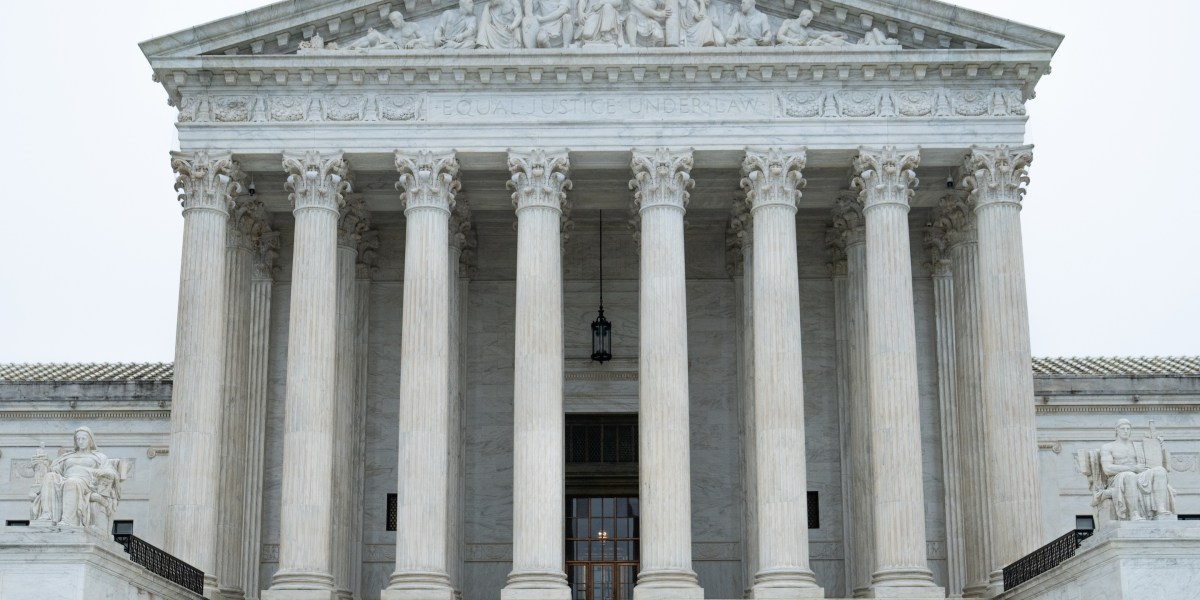Yves here. While this post contains useful historical detail on the evolution of democratic systems in many countries, its optimistic framing at the end, that the word is in a phase “democratic backsliding” but democracy experiments continue, is what Matt Stoller sometimes calls “adorable,” as in naive to the point of being treacly.
We are well on the way to a polycrisis. At the same time, the reach of surveillance tools is increasing as elites are increasingly worried about their legitimacy and ability to hold on to power. We are seeing increases in authoritarianism across Western nations, staring with suppression of speech, persecution/prosecution of peaceful opposition forces, increasing election interference (see Romania and Moldova), and in the US, Trump’s announcement of the intent to use the military against internal enemies. It may turn out that the ability to contain opposition forces is vastly lower than the ability (in theory) to identify them, but individuals and organizations are already being turned into examples as part of the containment effort.
So yours truly is not bullish about democracy.
By John P. Ruehl, an Australian-American journalist living in Washington, D.C., and a world affairs correspondent for the Independent Media Institute. He is a contributor to several foreign affairs publications, and his book, Budget Superpower: How Russia Challenges the West With an Economy Smaller Than Texas’, was published in December 2022. Produced by Economy for All, a project of the Independent Media Institute
Sri Lanka’s 2024 elections have fast-tracked reforms that began after the country’s 2022 economic crisis, when mass protests forced limits on presidential powers. In 2025, the new government has been pushing further toward a parliamentary system, which was in place during its independence before it converted to a presidential system in 1978. Sri Lanka’s potential swing back fits South Asia’s traditional experimentation with different democratic models. Pakistan also began as a parliamentary democracy during independence, but has since then alternated between parliamentary and presidential systems. Bangladesh, meanwhile, transitioned to a presidential system before reverting to parliamentarism in 1991.
The ongoing debate in South Asia is part of a larger conversation about what type of democratic governance is best. With the notable exception of China, North Korea, Saudi Arabia, and a handful of other authoritarian states, most of the world’s countries now hold regular elections with at least a formal commitment to democracy. Roughly “36 percent of democracies are parliamentary, 25 percent are presidential, and 39 percent are semi-presidential,” according to the nonprofit educational technology platform OpenStax.
Democracy has become the global default system of government in recent decades, but its appeal and credibility have waned. Many regimes that call themselves democratic conduct rigged elections or have stage-managed political processes, while in long-established democracies, trust is eroding in institutions. With ideological competition increasingly taking place within democracies rather than against other political ideologies, understanding the development, forms, and appeal of different models is increasingly essential to safeguard the process.
The origins of today’s democratic models took shape in distinct ways, centuries after the ancient Greeks in Athens introduced self-rule, allowing a limited segment of society to govern through direct or representative voting. The U.S. established the first presidential republic in 1789, with a president directly elected as head of state and government. Independent from the legislature, the president appointed an administration largely of their choosing (subject to legislative approval). While the office echoed monarchical power, it was constrained by checks from other branches and later by term limits.
The model proved popular across the Americas during the 1800s, as newly independent countries adopted the presidential template to assert sovereignty and strengthen executive authority in the face of instability and foreign pressure.
Parliamentary government, by contrast, places executive authority with the legislature instead of a single office. The prime minister can be removed through a vote of no confidence, and cabinets often depend on changing coalitions to retain power.
This system traces back to medieval Europe, where monarchs occasionally consulted assemblies but typically limited their powers. After England’s Glorious Revolution of 1688, the monarch was required to govern with parliament’s consent, and over the next centuries, parliamentary systems spread across Europe and former British colonies like Canada, Australia, and New Zealand.
After both World Wars, new democracies in Europe and Asia often adopted parliamentary institutions, with the U.S. encouraging them to avoid concentration of executive power in one figure and guarding against the return of strongman rule. “The post-Second World War occupations of Germany and Japan were America’s first experiences with the use of military force in the aftermath of a conflict to underpin rapid and fundamental societal, political, and economic transformation. … Their success demonstrated that democracy was transferable; that societies could, under certain circumstances, be encouraged to transform themselves,” stated E-International Relations.
The rollback of European colonial empires produced a wave of democracies, with other British colonies also adopting parliamentary systems, building on institutions established under colonial rule.
India’s democratic system, for example, was shaped by the Indian Civil Service and British administrative frameworks and became the largest parliamentary democracy in the world after independence in 1947.
Elsewhere, however, democratization was far more rushed. Many anti-colonial movements rejected British and other European parliamentary traditions in favor of presidential systems, which promised unity and decisive leadership while giving ambitious leaders a clearer path to consolidate power. Former British African colonies like Ghana, Malawi, Nigeria, Kenya, and Uganda had parliamentary systems when established, but switched to presidential rule after independence. Outside Africa, countries such as Guyana and Sri Lanka also opted to change to centralized presidential systems.
While many governments often sought to avoid pure presidentialism, frustration over frequent government collapses, weak coalitions, and legislative paralysis within parliamentary systems by the mid-20th century led to experimentation. In 1958, after 24 governments in 12 years, Charles De Gaulle restructured French democracy, creating the Fifth Republic with a directly elected president alongside a prime minister accountable to parliament. This semi-presidential model was built on earlier examples in Weimar Germany and Finland and was not formally identified until the 1970s.
The president, directly elected by the people, became responsible for foreign policy, defense, and diplomatic representation. The prime minister, typically appointed by the president, became in charge of domestic policy and ran the cabinet while remaining accountable to the legislature. This arrangement also allowed for “cohabitation,” when the president and prime minister come from different parties, and has been adopted by other countries seeking strong, directly elected leadership with parliamentary oversight. Semi-presidential systems nonetheless vary widely in the balance of power between the two offices.
Democracy in the Modern Era
The fall of communism provided a path for further democratic expansion. Some followed the broader European pattern of adopting parliamentary systems, including Estonia, Latvia, Hungary, and the Czech Republic. Georgia and Armenia also reformed into parliamentary democracies in the 2010s, while Moldova has gradually reduced its presidential powers, moving toward a parliamentary system. Other countries, like Romania and Poland, became semi-presidential systems.
Russia, Belarus, Azerbaijan, and Central Asian states, however, adopted presidential politics and have seen them evolve into super-presidential systems characterized by strongman rule. Kyrgyzstan began experimenting with parliamentarism following two revolutions. The “Tulip Revolution” in 2005toppled President Askar Akayev but left presidential dominance mostly intact. A second uprising in 2010 led to constitutional changes that redistributed power between the president, prime minister, and parliament, laying the foundation for a parliamentary system. The country, however, reverted to a strong presidential model after constitutional changes in 2021. Ukraine, meanwhile, attempted reformthroughout the 2000s and 2010s to reduce presidential power, but the 2022 Russian invasion has pushed it back toward a centralized presidential model to maintain wartime unity.
As in the Cold War, Washington has continued to support various democratic forms. It backed color revolutions in post-Soviet and post-Yugoslav countries to encourage parliamentary rule, while tolerating presidential strongmen in Africa for the sake of stability.
Nation-building during the war on terror further reflected the same pragmatism: Iraq was established as a parliamentary republic to create political consensus and appease the sectarian society, while Afghanistan was given a strong presidential system to unify the country. Afghanistan’s political system collapsed after the complete withdrawal of the U.S. army from the country in 2021, while Iraq’s system, despite constant crises, has so far endured.
The results appear to vindicate what Juan J. Linz argued in his article, “The Perils of Presidentialism,” published in 1990 during a wider debate over democratic systems, that new democracies should favor parliamentary systems if they want to survive. Presidentialism’s “winner-take-all” makes democracy a zero-sum game. “Linz argued that such a system discouraged compromise and coalition building while exacerbating competition and polarization,” stated the blog by Justice Everywhere. Yet these dynamics are not exclusive to presidential systems, with parliamentary democracies like India and the UK also capable of eroding democratic norms through majoritarian rule.
Meanwhile, the reemergence of the strongman archetype has similarly appeared in parliamentary systems, often aided by the lack of term limits. Israel briefly experimented with directly electing its prime minister in the 1990s before reverting to the traditional vote by parliament in 2001. But under Benjamin Netanyahu, constitutional changes and political practice have increasingly concentrated power in the prime minister’s office.
In Hungary, Viktor Orbán has in turn reshaped parliamentary institutions to entrench his party’s rule. India’s Prime Minister Narendra Modi has centralized authority, evolving from earlier efforts under Indira Gandhi and some of her supporters during the Emergency (1975-1977) to move to a more presidential system.
Fears of power consolidation remain greater, however, in presidential systems. Despite the heightened threat of coups and military control to remove an unpopular president, some argue that its advantages offset the risks, especially when legislative powers are limited. Strong presidents can ensure consistent leadership during a crisis, but strict term rules make removing a president difficult. Prime ministers, in contrast, can be removed relatively easily.
Parliamentary democracy has its own strengths and vulnerabilities. Belgium—a longstanding parliamentary democracy and the heart of the EU—went without a federal government for 652 daysbetween 2018 and 2020. Yet the system endured until consensus was reached, without one person needing to dominate the government.
Semi-presidentialism is often seen as a good middle ground, but it carries risks of its own. France’s experience since switching to this model has shown how cohabitation can create gridlock. Its current revolving door of prime ministers highlights the fragility that can emerge even without formal cohabitation. Newer semi-presidential democracies, such as Tunisia, have shown how unclear boundaries between the president and parliament can create instability that threatens the political system.
Sri Lanka’s ongoing political evolution shows the appeal of parliamentary systems, though strong presidentialism also retains allure. In 2017, Turkey formally abandoned nearly a century of parliamentary democracy for a presidential system. Tunisia’s 2021 coup came just a decade after the Tunisian revolution, birthplace of the Arab Spring, and until then, its only “success story.” Since then, President Kais Saied has turned Tunisia from a semi-presidential system into a strong presidential republic, sidelining parliament and the prime minister’s office. Egypt has followed a similar path, strengthening presidential power and reversing earlier reforms.
Despite his criticism of presidential systems, Juan Linz made an exception for the U.S., tying its stability to a broad moderate consensus and a lack of deep polarization. With those conditions now under strain, arguments are being made for the U.S. to adopt a parliamentary system. Similar debates surround Sri Lanka’s future, alongside Syria and Ukraine, once their conflicts end.
Amid the current wave of democratic backsliding and dissatisfaction, the wider ideology continues to evolve. Unlike past eras, marked by often violent divisions between fascism, communism, and monarchy, democracies today cooperate extensively across ideological and institutional lines. Sharper divides and rivalries between different democratic models risk orienting their future evolution toward greater antagonism.
Although experimentation carries risks of instability, the coming decades could produce innovations that redefine what a successful democracy looks like. Change also occurs on smaller scales: with council-manager governments operating at the municipal level in the U.S. in ways that resemble parliamentary systems. Local adaptations and more common transitions between parliamentary, presidential, and hybrid systems may become an increasingly normalized strategy for democracies to survive and manage relations.



























